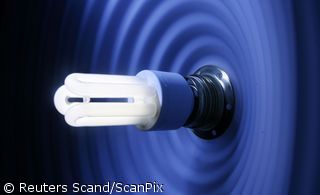Sony Computer Entertainment has decided it's better to work with Connectix, a developer of software that helps PlayStation games run on PCs, than to fight the company.
Published:
16 March 2001 y., Friday
The companies announced Thursday a joint technology agreement under which they will work together on advanced "emulation" products that will allow PlayStation software to run on other systems. In addition, all legal issues surrounding San Mateo, Calif.-based Connectix's Virtual Game Station software have been resolved.
Sony filed a copyright and patent infringement suit against Connectix in early 1999. Sony argued that because Virtual Game Station allowed PlayStation games to be played on PCs, it was harmful to game publishers, developers, creators and ultimately consumers.
Sony makes a majority of its PlayStation-related revenue from licensing and royalty fees for PlayStation software; the actual consoles are sold at a loss. The same is true of other game manufacturers. But sales of peripherals such as controllers and memory cards help make up a significant revenue stream, and that may be part of the reason Sony has been so adamant about the suit against Connectix according to Gartner analyst P.J. McNealy.
Under the agreement, Sony will acquire Connectix assets related to Virtual Game Station, but Connectix will continue to sell the software for Macintosh and Windows until the end of June. The companies will continue to develop emulation technology.
Competition in the gaming industry is expected to get fierce this year as new consoles from Microsoft and Nintendo are released. However, Sony's PlayStation 2 will have a considerable head start. The consumer electronics giant said it expects to sell 3 million units in the United States by the end of the year and 9 million worldwide.
Šaltinis:
CNET News.com
Copying, publishing, announcing any information from the News.lt portal without written permission of News.lt editorial office is prohibited.
The most popular articles
 How will economic policies adapt in 2020 when a quarter of the EU population is over 65? Can economics better predict how banks will react to credit crunches in the future, and what their impact will be on the wider economy?
more »
How will economic policies adapt in 2020 when a quarter of the EU population is over 65? Can economics better predict how banks will react to credit crunches in the future, and what their impact will be on the wider economy?
more »
 The EBRD is supporting the development of one of the first modern food retail chains in Turkmenistan with a $1.9 million equity investment in Ak Enar.
more »
The EBRD is supporting the development of one of the first modern food retail chains in Turkmenistan with a $1.9 million equity investment in Ak Enar.
more »
 While on a working visit to Ukraine, President of the Republic of Lithuania Dalia Grybauskaitė has underlined that Ukraine might become a very important energy partner for Lithuania and for the whole European Union but only transparent and open relations will lead to success in this area.
more »
While on a working visit to Ukraine, President of the Republic of Lithuania Dalia Grybauskaitė has underlined that Ukraine might become a very important energy partner for Lithuania and for the whole European Union but only transparent and open relations will lead to success in this area.
more »
 On 25 November in Vilnius, Lithuania’s Vice-Minister of Foreign Affairs and President of the Nordic Investment Bank discussed the issues of the Northern Dimension Partnership on Transport and Logistics (the secretariat of which is being established at the Bank), issues of the NIB cooperation with Lithuania and perspectives of the NIB’s activities in the country.
more »
On 25 November in Vilnius, Lithuania’s Vice-Minister of Foreign Affairs and President of the Nordic Investment Bank discussed the issues of the Northern Dimension Partnership on Transport and Logistics (the secretariat of which is being established at the Bank), issues of the NIB cooperation with Lithuania and perspectives of the NIB’s activities in the country.
more »
 The European Bank for Reconstruction and Development has adopted a new strategy for the Russian Federation.
more »
The European Bank for Reconstruction and Development has adopted a new strategy for the Russian Federation.
more »
 Consumer protection requires transparent and consistent trade rules, believe MEPs.
more »
Consumer protection requires transparent and consistent trade rules, believe MEPs.
more »
 The European Investment Bank (EIB) is lending CZK 2 billion (approx. EUR 76 million) to the South Moravia Region for co-financing the Region’s priority infrastructure projects supported by the EU Structural and Cohesion Funds over the period 2007 – 2013.
more »
The European Investment Bank (EIB) is lending CZK 2 billion (approx. EUR 76 million) to the South Moravia Region for co-financing the Region’s priority infrastructure projects supported by the EU Structural and Cohesion Funds over the period 2007 – 2013.
more »
 Seeking to strengthen business partnership between Israel and Lithuania the Israel and Lithuania Chamber of Commerce has been recently established in Lithuania.
more »
Seeking to strengthen business partnership between Israel and Lithuania the Israel and Lithuania Chamber of Commerce has been recently established in Lithuania.
more »
 AB DnB NORD Bankas, notifies that on 24 November 2009, the member of the Management Board and Executive Vice-president of AB DnB NORD Bankas dr. Jekaterina Titarenko has been appointed as Chief Financial Officer of Bank DnB NORD Group.
more »
AB DnB NORD Bankas, notifies that on 24 November 2009, the member of the Management Board and Executive Vice-president of AB DnB NORD Bankas dr. Jekaterina Titarenko has been appointed as Chief Financial Officer of Bank DnB NORD Group.
more »
 Parliament gave its backing on Tuesday for €400 million-plus in budget aid to Serbia, Bosnia and Herzegovina, Armenia and Georgia.
more »
Parliament gave its backing on Tuesday for €400 million-plus in budget aid to Serbia, Bosnia and Herzegovina, Armenia and Georgia.
more »